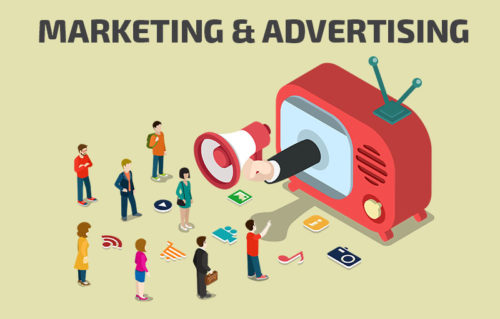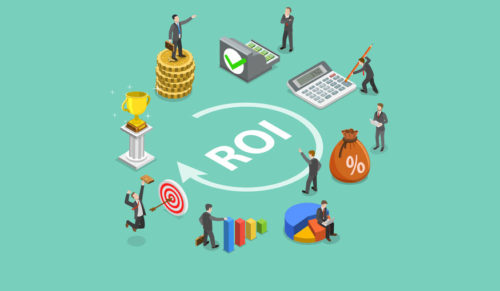Consulting with OSCAR - A Winning Approach to Sales
DAVE COX
Remember Oscar the Grouch from Sesame Street? He was the mangy green character that lives in a garbage can and loves trash. He was usually rude and unpleasant, always the pessimist. He would make a terrible salesperson. But, interestingly, his name, Oscar, can actually make you great at sales!
Selling is the end-goal of all other activity in business because business is about generating revenue, and revenue is generated by closing deals. In life, sales ability is also valuable. It’s what gets you a free room upgrade at your hotel check-in. It’s getting your wife’s agreement that her parents should stay in the guest house rather than in your house. It’s getting free food at a drivethrough. It’s getting the job you might have been slightly less qualified for than your competition.
Having the ability to sell will make your life better, it doesn’t matter what your job is, what your situation is, what your goals are. Learning and possessing just a little bit of selling ability will give you more confidence and improve your chances of getting good breaks.
Now, nobody likes the pushy, annoying salesperson. So in my experience, the best approach is a non-threatening, consultative approach. The key to consultative selling is worth its weight in gold. How do you consult well? By asking great questions. But if you don’t know what questions to ask, where do you start?
Consult with Oscar. Not Oscar the Grouch, although you can use him as a way to remember this simple guide to consultative selling: Outcomes, Services, Customer, Advertising, Return. This acronym is an easy way to stay on-point during a deal-making conversation (aka sale). Two of the most common challenges are gaining trust (or respect) from the buyer and staying organized (and in control). Oscar helps you to do both in a conversation. Using Oscar to help you ask great questions will help you gain trust from the buyer, stay on track, and close the sale. Oscar is an acronym for you, the consultant, to use as a framework for your conversation with the buyer. Let’s take a look at each component of the acronym.

O is for outcomes. This section is most critical because it gives you information that you will continue to come back to throughout the sale. Outcome refers to the needs or goals the buyer has. It’s what they are trying to fix, accomplish, or achieve. What are your goals for your business this year, Mr. Customer? What has got you thinking about (insert the product or service you are selling)? What would selling that product or service do for you? How would that impact your business? What is the impact if you don’t do it? S is for services. This one is pretty simple and business people love to talk about what they do. What type of products and services does your company provide, Mr. Customer? Other than these, are there any other type of jobs that you do?

C is for customer—not the potential customer you’re talking to, but their customers. What does your typical customer look like, Mr. Customer? What’s the age or income level of your most common customer? Can you describe your ideal customer? How much value does the average customer bring into your business?

A is for advertising, or marketing. The goal here is to find out everything you can about how your prospect markets their business. How do your customers find you, Mr. Customer? What is your most effective marketing tool? What’s your conversion rate (how many paying customers do you get for every 10 or 100 leads)?

R is for return. Almost every selling conversation you have needs to come back to ROI. A buyer can justify a purchase decision if you clearly show them how it will impact their bottom line. What type of return are you expecting if you make this investment, Mr. Customer? What would be an acceptable ROI in your mind if you were to make x purchase? If I could show you a certain return, would that be good business for your company? This is where you can do simple math quickly to demonstrate to the buyer that they should purchase.
ROI = (Net Profit/Total Investment)*100 (%)
Example: If you’re your proposal costs $100 and you can quantify an expected return of $1000, that would be a ROI of 900%. (900/100)*100% = 900%. Close the deal now, full stop. Most decision makers, if they are convinced a decision will be profitable, will go ahead with that decision. If the seller has gotten his numbers right in this example, logically speaking, the buyer would not object on cost. No one would turn down $9 in return for every $1 they invested in their brokerage account. If you can quantify the ROI for your product or solution, all other things being equal, you can close most of the deals you are involved in.
All the world’s best deal-closers are able to sell, and the best take a consultative approach. Consulting begins with asking great questions. When it comes to many of the big outcomes in life, work, the new car, the house, the vacation plans with your wife, make no mistake, there is selling involved. You should always consult with the buyer’s outcome and return in mind. At the point in my career when I started taking a consultative approach with my sales process, I found myself enjoying it more, learning more about different types of businesses, and actually closing more deals!
So why not try consulting with Oscar? I bet you will like Oscar the Consultant more than Oscar who lives in a trash can!
Interested in reading 99 other stories just like this? Grab The Better Business book here.




